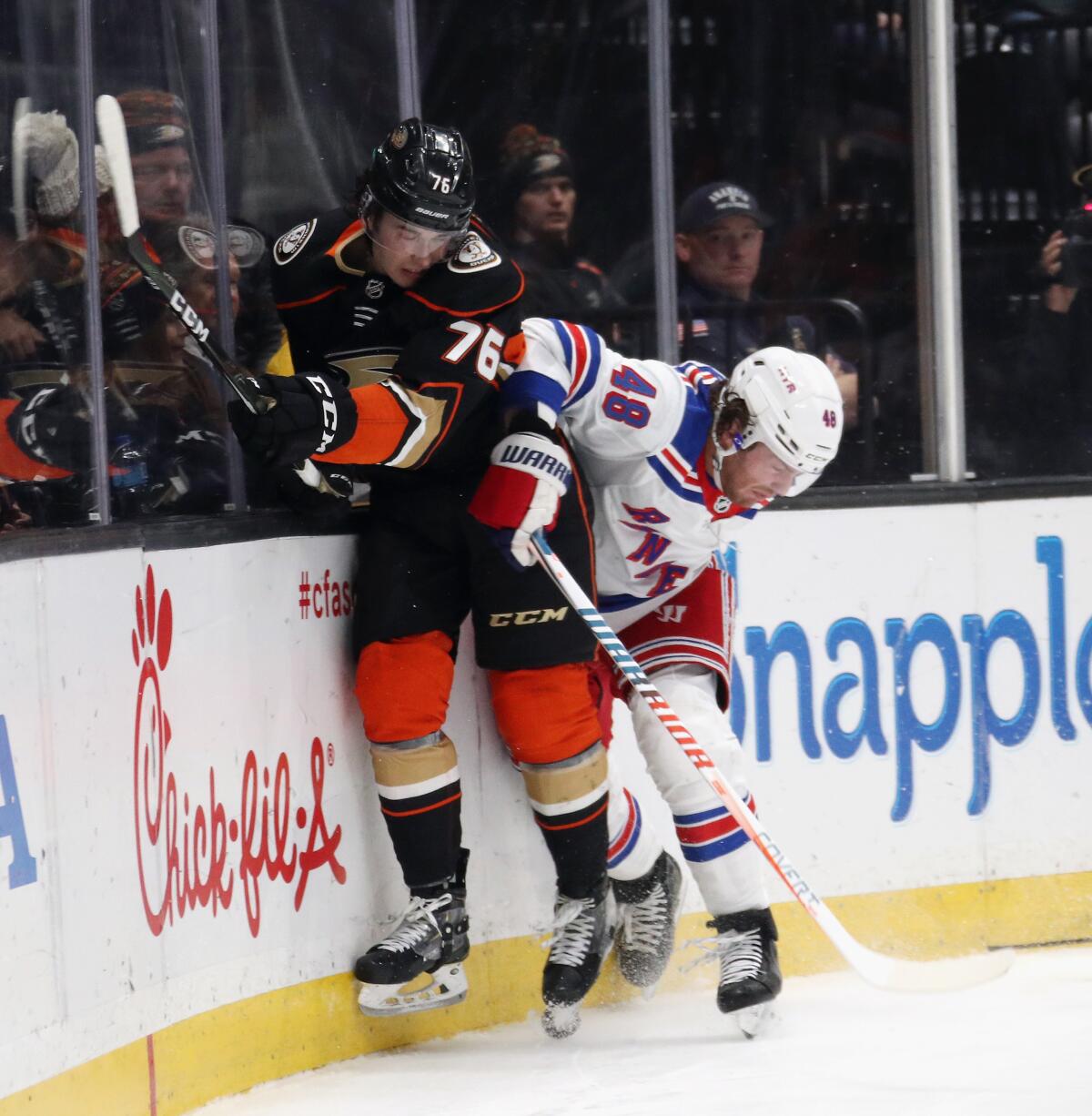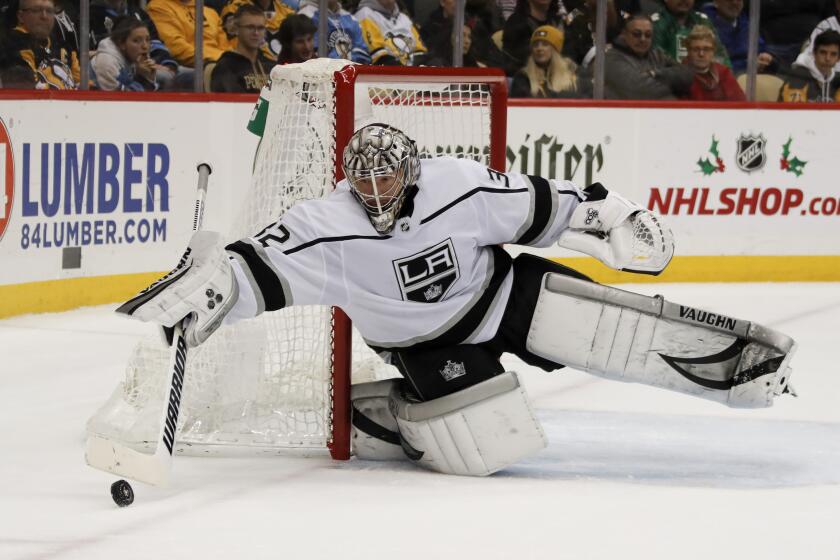Ducks’ prospects grow familiar with shuttling between Anaheim and San Diego

- Share via
Josh Mahura lets his mind drift while music pulses through the speakers of his Grand Cherokee. Max Comtois keeps his hands on his Audi steering wheel and his eyes fixed on the road in front of him. Other young Ducks players have developed their own techniques for a drive that can feel either uplifting or upsetting, and very rarely anything in the middle.
Colloquially, it’s called the I-5 shuttle – a 90-mile trek down the Southern California coast that separates the Ducks’ NHL headquarters from its minor-league affiliate in San Diego. For a club in transition, it’s the physical pathway connecting the franchise’s present to the future. And over the last two years, its next generation of players have become well-accustomed with the trip.
“You’re pretty lucky to be in that situation to be about an hour there and be traveling to come over,” Mahura said. “It makes it a lot easier.”
Up-and-comers such as Mahura and Comtois know when to leave – “after dinner,” Mahura laughed. They know which exits to take – Katella Avenue to get to Honda Center, and Route 56 to reach the San Diego Gulls’ practice facility in Poway.
Hampus Lindholm’s power-play goal tied the game late in regulation on the way to a shootout, and the Ducks rallied to beat the Rangers 4-3.
Most of all, they know how different it can feel depending on which direction they’re headed. Northbound drives represent a cherished NHL call-up, a trip usually spent alerting family and arranging ticket requests. The return swing is more somber, a voyage often occupied by reflection upon a return to minors.
“Some of the stuff that happens is out of your control,” said Mahura, a 2016 third-round pick who has been called up a team-high three times this season. “Just manage what you’re doing, whether it’s San Diego or here.”
The Ducks have made heavy use of their NHL-AHL union of late. Last year, 12 players spent at least 10 games with both the Ducks and the Gulls. This season, seven players have already made at least one round trip (called up and sent down). The latest transaction – forward Sam Carrick being optioned back to San Diego – was made official during the first period of the Ducks’ 4-3 shootout win against the New York Rangers on Saturday afternoon at Honda Center.
The reasons for each roster move vary. But coach Dallas Eakins, who spent the last four seasons coaching the Gulls, offers the same encouraging message to each player making a temporary NHL exit: Stay ready. For most prospects, a return to the top league is never that far away.
“Here’s what usually happens: A guy comes up from the minors and you’re the NHL coach, and the first thing you usually think is, ‘Is that guy going to cost us?’ ” Eakins said. “Because I know all these guys so well, I have no fear of putting them into any situations.”
The Kings notched two goals late in the third period, but Bryan Rust scored twice in regulation and once in the shootout for the Penguins in a 5-4 win.
Take, for instance, the Ducks’ “Kid Line” that played a key role Saturday afternoon. Comtois, 20, played alongside 21-year-olds Sam Steel and Troy Terry – current full-time NHLers who know the Anaheim-San Diego route well.
“For me, I really enjoyed playing down there,” said Terry, who has eight points in 32 NHL games this year after splitting last season between the Ducks and Gulls. “It’s all about mind-set. Obviously, the young guys going up and down, they don’t play huge minutes up here. When I got sent down, I was able to go be a guy on a team, play a lot. That was fun for me.”
Terry acknowledged that, in the moment, his round trips between the two cities was taxing. Hindsight, however, has allowed him to see the positives in a process the Ducks hope will fast-track a rebuild.
“I miss San Diego, I really liked living down there,” he said, before smiling. “But I don’t miss driving.”
More to Read
Go beyond the scoreboard
Get the latest on L.A.'s teams in the daily Sports Report newsletter.
You may occasionally receive promotional content from the Los Angeles Times.









